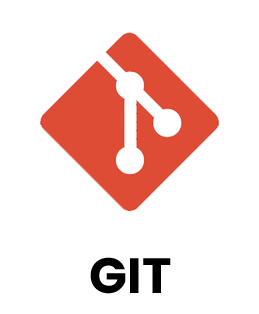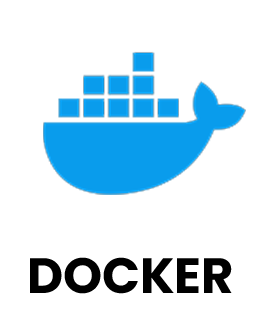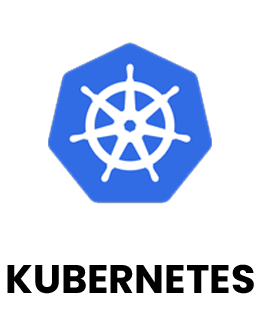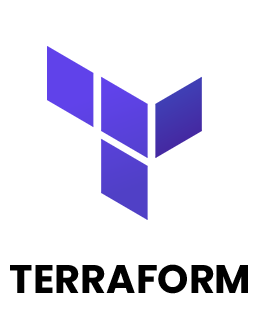The DevOps Training Program in Atlanta will teach you how to use various DevOps tools such as Git, Jenkins, Docker, Ansible, Terraform, Kubernetes, Prometheus, and Grafana. This DevOps Certification course is entirely hands-on and is designed to help you become a certified practitioner by guiding you through best practises in Continuous Development, Configuration Management, and Continuous Integration, as well as Continuous Monitoring of software throughout its development life cycle.This DevOps certification training will assist you in mastering the art and science of improving your entire team's development and operational activities. This DevOps course will provide you with hands-on experience in continuous deployment using configuration management tools such as Puppet, SaltStack, and Ansible.
Additional Info
Introduction:
DevOps certification course will teach you the fundamentals of software development, operations, CI/CD, automated build, test, and deployment. You will learn DevOps tools such as Git, Puppet, Jenkins, Docker, and others in this best DevOps training. This is India's first DevOps course, validated and certified by NASSCOM and co-created with IBM to prepare you for the industry.DevOps certification training will assist you in developing the necessary skill set for a DevOps Engineer position. This DevOps online course will teach you how to use DevOps tools like Git, SVN, Docker, Docker Swarm, Kubernetes, Puppet, Ansible, Selenium, Maven, Nagios, Chef, and more to become proficient in DevOps skills like Continuous Integration, Delivery and Deployment, Infrastructure as a Code, and more.
This DevOps certification training was created by industry experts with years of experience building and scaling production applications for millions of users worldwide (Amazon, Google, Cisco, Byjus).In this course, we will build Continuous Integration (CI) and Continuous Delivery (CD) pipelines to deploy applications to various environments such as testing, staging, and production. We'll also see end-to-end examples of how to use Docker, Kubernetes, Prometheus, and Jenkins to deploy, scale, and monitor your application.
The course will be completely hands-on, and we will make every effort to provide you with a best-in-class learning experience as well as enough knowledge to begin your career as a DevOps Engineer. Furthermore, the course provides you with a solid foundation to begin preparing for various certifications such as DCA (Docker Certified Associate) and CKAD (Certified Knowledge Administrator) (Certified Kubernetes Application Developer)
Who can Start:
What are the eligibility requirements for the JobAssist programme?
To be eligible for the JobAssist programme, you must:
- Be a college graduate (engineering or equivalent).
- Complete our postgraduate programme successfully and receive a certificate upon completion.
Will the JobAssist programme ensure that I get a job?
- No, the JobAssist programme is intended to assist you in finding your ideal job.
- It will boost your potential and increase your chances of landing a successful job. The final decision is always made by the recruiter.
What are the requirements for this DevOps course?
The following are some of the prerequisites for enrolling in this DevOps certification training:
- A basic understanding of Linux or scripting is advantageous.
- To help you with this, we offer a free Linux self-paced course to help you learn faster.
- Prior IT experience is required to learn this technology.
- This online DevOps certification course will teach you the fundamentals of software development, operations, CI/CD, automated build, test, and deployment.
- You will learn DevOps tools such as Git, Puppet, Jenkins, Docker, and others in this best DevOps training.
- This is India's first DevOps course, validated and certified by NASSCOM and co-created with IBM to prepare you for the industry.
In this DevOps course, how will I carry out hands-on exercises?
- All of our hands-on sessions, case studies, and projects will be run on the AWS Cloud.
- When you enrol in the DevOps training online, we will assist you in setting up your AWS Free Tier account.
- We will also provide you with virtual environments (VMs) that will allow you to practise even when you are not connected to the internet!
- This online DevOps certification course will teach you the fundamentals of software development, operations, CI/CD, automated build, test, and deployment.
- You will learn DevOps tools such as Git, Puppet, Jenkins, Docker, and others in this best DevOps training.
- This is India's first DevOps course, validated and certified by NASSCOM and co-created with IBM to prepare you for the industry.
In this DevOps course, how will I carry out hands-on exercises?
- All of our hands-on sessions, case studies, and projects will be run on the AWS Cloud.
- When you enrol in the DevOps training online, we will assist you in setting up your AWS Free Tier account.
- We will also provide you with virtual environments (VMs) that will allow you to practise even when you are not connected to the internet!
Why should you pursue this DevOps certification course?
You should take this DevOps course for the following reasons:
- According to Gartner, the DevOps industry will grow six times faster by 2022.
- A DevOps engineer's annual salary in the United States is $ 136,500, while it is approximately INR 666,232 in India (PayScale).
- According to Forbes, DevOps and Cloud jobs will be among the highest paying jobs in the coming years.
- A DevOps Architect is the technical team's backbone in any organisation.
Roles and Responsibilities:
1. Creating and deploying new development tools and infrastructure, as well as understanding and communicating the needs of stakeholders to developers, as well as working on ways to automate and improve development and release processes.
2. Testing and examining other people's code and analysing the results to ensure that systems are safe and secure against cybersecurity threats.
3. Detecting technical issues and creating software updates and 'fixes'.
4. Working with software developers and software engineers to ensure that development adheres to established processes and works as intended planning projects and participating in project management decisions.
Career path of this Training
Advantages of Devops Certification Course:
1. Increased Job Opportunities:
- DevOps is a relatively new concept in the IT world, with more businesses considering implementing DevOps processes and practises. There is a significant mismatch between the demand for DevOps Certified professionals and the availability of DevOps professionals.
- IT professionals can take advantage of the huge shortage of highly skilled professionals by pursuing DevOps certification for validation of DevOps skillsets. This will ensure and guarantee significantly better job opportunities.
2. Increased Skills and Knowledge:
- DevOps' core concept revolves around entirely new decision-making methods and thought processes. DevOps provides a plethora of technical and business benefits that, once learned, can be implemented in an enterprise.
- The fundamentals of DevOps are professionals working in cross-functional teams. These teams are made up of multi-disciplinary professionals such as business analysts, quality assurance professionals, operations engineers, and developers.
3. Salary Increase:
- Rapid adoption of DevOps best practises in organisations, as well as their implementation in the aforementioned organisations, has resulted in massive pay increases for DevOps professionals.
- According to industry experts around the world, this trend is consistent and sustainable. DevOps professionals are paid the most in the IT industry.
4. Enhanced Productivity and Effectiveness:
- Employees and staff in traditional IT workplaces are affected by downtime, which can be attributed to waiting for other employees or staff, as well as other software and software-related issues.
- The primary goal of an IT professional at work would be to be productive for the majority of the time he or she is there. This can be accomplished by reducing the amount of time spent waiting for other employees or software products and eliminating the unproductive and unsatisfying aspects of the work process.
- This will improve the efficiency of the work and greatly increase the value of the company and its employees.
5. Increase Your Organization's Visibility in Building, Running, and Securing Modern Applications:
- The core of DevOps methodology is to encourage greater communication and collaboration between development and operations teams. This directly leads to shorter development cycles, which increases the frequency with which release code is put into production.
- Months of work can be reduced to a few hours by incorporating DevOps into defect detection processes in QA and QC with extreme ease. This will greatly benefit your business and allow you to stand out from your coworkers.
6. Stability and Quality of Software:
- The distinct feature of DevOps is the high level of accountability for building and running applications that are expected to work as planned. In a DevOps-enabled enterprise, the entire team will share common quality objectives such as stability, performance, security, user experience, and time to market.
- Once implemented, DevOps principles will ensure that all processes and project activities are closely monitored, and the impact of changes within processes is well known and understood within the organisation.
7. Reduced Change Risk:
- Traditional IT has always been resistant to change for fear of disrupting existing company operations. This impediment to rapid progress in an enterprise is the root cause of all operational issues.
- By implementing several layers of assessment, review, and approval workflows, change processes were monitored and checked in their tracks. However, in today's IT marketplace, change occurs at a rapid pace in most work environments, necessitating the delivery of high-quality products within tight deadlines.
- And all of this must be done while meeting the high expectations for speed and agility that enterprises in the IT domain have today.
Skills Covered:
- Bash, PowerShell, C #, C++, Python, PHP, Ruby, Java, and other simple computing and scripting languages must be well-versed.
- An understanding of computer structures such as relational types SQL and NoSQL.
- Implement cloud infrastructure expertise to deliver updates and problem fixes via AWS, Azure, or GCP.
- Comments and suggestions from users are used to plan, build, and launch product integrations.
- Troubleshooting and resolving manufacturing issues, as well as collaborating with the engineering department to automate and streamline technology delivery.
- Software system and resource-pipeline implementation CD / CI.
- Manage the information technology infrastructure, which includes the network, applications, hardware, servers, virtual and remote properties, and data cloud storage capacity.
- Constantly monitor the machine environments for any vulnerabilities.
- Develop technical methods, processes, protocols, and security plans in collaboration with staff leaders.
Payscale:
1. DevOps Certification in Atlanta typically earn around $102,959 per year, while software engineers earn around $100,690 per year.
2. It also depends on many factors, such as experience, company, and country, so it varies but is roughly that.
3. According to PayScale, the average annual salary for a DevOps engineer is around INR 6.6 lacs.
4. According to PayScale, pay is frequently a feature of the skill sets acquired by a DevOps Cwertification.
5. Several DevOps employees have switched to other similar positions over a 10-year period.








































